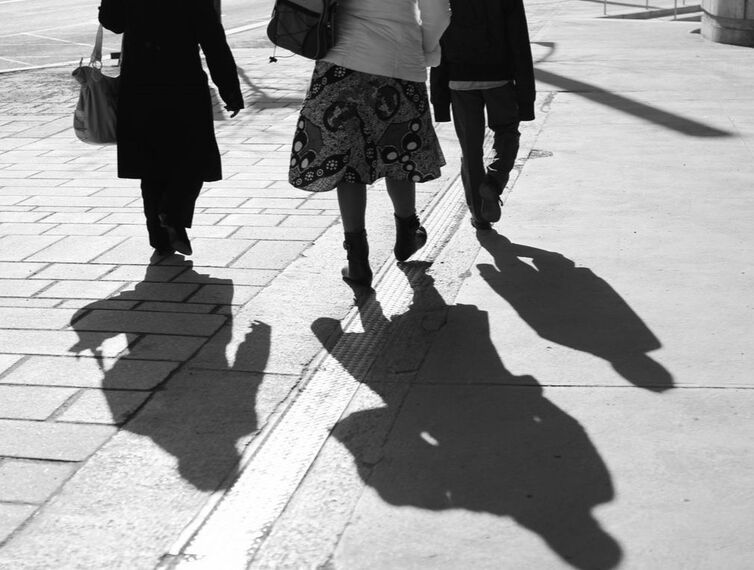|
|
|
In times of rising nationalism, expressed through growing support for anti-migration and anti-globalisation political parties, the nation seems under question in its unifying thrust.
Historically, the nation has emerged in association with a given ‘people’, defined in terms of common myths, language and ethnicity (Smith 1986), who claims sole entitlement to a given territory (Gellner 1983). With the ongoing demographic transformation, spurred in great part by international migration, the question is whether and how the nation might change because its ‘people’ is changing. In normative terms, civic, liberal and multicultural nationalism have tackled this issue, offering various ways of reconciling nation and diversity. Yet, the recent upsurge in the Western world of what can be called ‘white nationalism’, i.e. the (re)claiming of the nation as the privileged property of the white dominant group, openly challenges these normative projects.
In our Identities article, 'Ethno-cultural diversity and the limits of the inclusive nation', we explore specifically how nation and ethno-cultural and religious diversity are jointly mobilised in political discourses and policies in order to assess the possibilities and limits of the idea of an inclusive, plural nation.
We focus on the case of Italy, a country which since the 1980s has experienced a fast demographic change and which has remained till March 2017 a main destination of migratory flows from Sub-Saharian and Northern Africa. Our content and discursive analysis of parliamentary debates and policies related to migration from 1986 until 2014, complemented with individual interviews with relevant civic officers and politicians, reveals a clear divide between an inclusive rhetoric and an exclusive legal framework. By looking more closely at the Turco-Napolitano Law (1998), possibly the most progressive legislative attempt at incorporating migrants into the Italian nation, this divide is also clearly apparent. On the one hand, the political left, which authored the Turco-Napolitano law, talked of remaking the Italian nation in civic terms, centred on citizenship’s universal rights. On the other hand, the same political left decided to pass a law which framed immigration first and foremost as a security problem, thus casting an original doubt on the would-be ‘new Italians’, whose social status and moral standing would never be the same as the one of the Italians by descent. The reasons for this short-circuit between rhetoric and legal provision are related to the international and domestic contexts. Internationally, Italy’s room for manoeuvring was and remains constrained by the EU legal framework, whose Schengen agreement prevents to make the national borders more permeable. Domestically, as the political right successfully capitalizes on citizens’ fears towards migrants, the political left finds itself cornered and has to follow suit for electoral gains. In both cases, the end result is the reaffirmation of an ethno-cultural nation which makes conditional any national incorporation of migrants and their children. As much as this is what happens at the national level, in our article we also suggest that in order to fully explore the possibilities for generating an inclusive nation is also important to look beyond the national scale (Jones and Fowler 2007). In other words, the possibilities for generating an inclusive nation should also be considered away from a centralised, normative discourse which aspires to evenly spread across the national space. By adopting a multiscalar understanding of nation is for instance possible to attend to local initiatives where evidence of more inclusive and plural forms of nationhood has been highlighted (Rossetto 2015, Downing 2014). This approach returns a more articulated and fragmented picture, but also a more realistic one which dispels the idea that a progressive, inclusive nation can homogenously apply across the national space. References: Downing, J. 2014. Contesting and re-negotiating the national in French cities: examining policies of governance, Europeanisation and co-option in Marseille and Lyon. Fennia-International Journal of Geography 193: 185-197. Gellner, E. 1983. Nations and nationalism. Oxford: Blackwell. Jones, R. & C. Fowler. 2007. Placing and scaling the nation. Environment and Planning D: Society and Space 25: 332-354. Rossetto, T. 2015. Performing the nation between us: urban photographic sets with young migrants. Fennia-International Journal of Geography 193: 165-184. Smith, A. D. 1986. The ethnic origins of nations. Oxford: Blackwell.
Blog post by Marco Antonsich, Loughborough University, UK; and Enza Roberta Petrillo, University of Rome 'La Sapienza', Italy
Read the full article: Antonsich, Marco & Petrillo, Enza Roberta. Ethno-cultural diversity and the limits of the inclusive nation. Identities: Global Studies in Culture and Power. DOI: 10.1080/1070289X.2018.1494968
0 Comments
Your comment will be posted after it is approved.
Leave a Reply. |
|
Explore Identities at tandfonline.com/GIDE |
|
The views and opinions expressed on The Identities Blog are solely those of the original blog post authors, and not of the journal, Taylor & Francis Group or the University of Glasgow.

